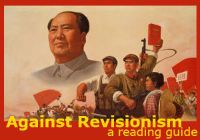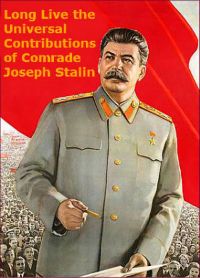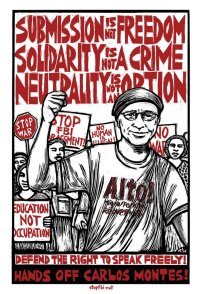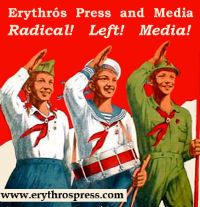 The August 29th Movement (M-L) was a Chicano Marxist-Leninist organization in the U.S. from 1974-1978, when it merged with I Wor Kuen to form the League of Revolutionary Struggle (M-L). This was made available on the web by LeftSpot:
The August 29th Movement (M-L) was a Chicano Marxist-Leninist organization in the U.S. from 1974-1978, when it merged with I Wor Kuen to form the League of Revolutionary Struggle (M-L). This was made available on the web by LeftSpot:
[QUOTE ON INSIDE FRONT COVER OF PAMPHLET:]
The liberation movement of the oppressed peoples and the proletarian revolution. In solving the national question Leninism proceeds from the following theses:
a] the world is divided into two camps: the camp of a handful of civilised nations, which possess finance capital and exploit the vast majority of the population of the globe; and the camp of the oppressed and exploited peoples in the colonies and dependent countries, which constitute that majority;
b] the colonies and dependent countries, oppressed and exploited by finance capital, constitute a vast reserve and a very important source of strength for imperialism;
c] the revolutionary struggle of the oppressed peoples in the dependent and colonial countries against imperialism is the only road that leads to their emancipation from oppression and exploitation;
d] the most important colonial and dependent counties have already taken the path of the national liberation movement, which cannot but lead to the crisis of world capitalism;
e] the interests of the proletarian movement in the developed countries and of the national liberation movement in the colonies call for the union of these two forms of the revolutionary movement into a common front against the common enemy, against imperialism;
f] the victory of the working class in the developed countries and the liberation of the oppressed peoples from the yoke of imperialism are impossible without the formation and the consolidation of a common revolutionary front;
g] the formation of a common revolutionary front is impossible unless the proletariat of the oppressor nations renders direct and determined support to the liberation movement of the oppressed peoples against the imperialism of its “own country,” for “no nation can be free if it oppresses other nations” [Engels];
h] this support implies the upholding, defense and implementation of the slogan of the right of nations to secession, to independent existence as states;
i] unless this slogan is implemented, the union and collaboration of nations within a single world economic system, which is the material basis for the victory of world socialism cannot be brought about;
j] this union can only be voluntary, arising on the basis of mutual confidence and fraternal relations among peoples.
[Stalin from Foundations of Leninism]





![Lenin_Statue_&_USSR_Flag_thumb[2]](http://web.archive.org./web/20200928005159im_/https://marxistleninist.files.wordpress.com/2010/01/lenin_statue__ussr_flag_thumb2.jpg?w=229&h=300)

















